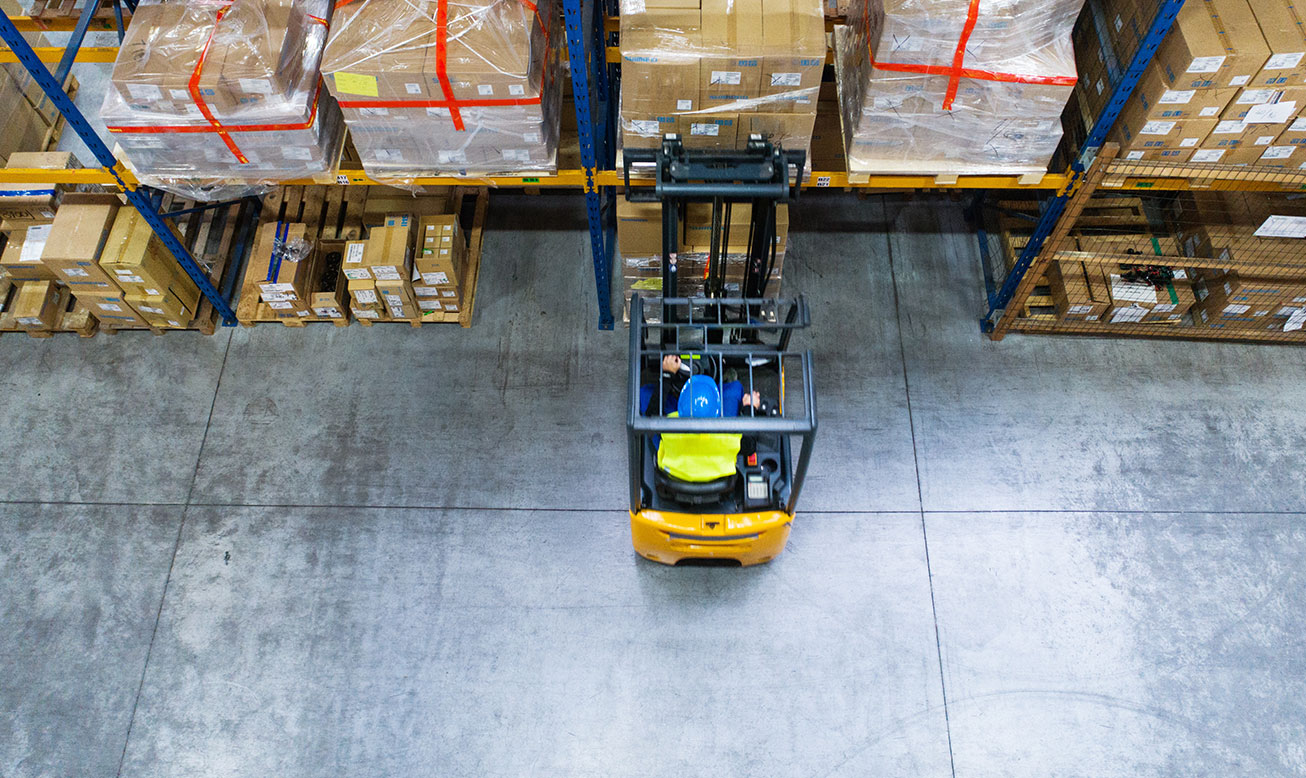December 4, 2024
The Line Haul Impact on Last Mile Operations
The phrase “last mile delivery” has caught a lot of fire in recent years, especially since the aftermath of the COVID-19 pandemic and its almost direct connection to customer satisfaction. However, an equally critical stage precedes it: line haul operations. Line haul involves the long-distance transportation of goods between distribution centers or hubs, acting as the middle mile in the supply chain. This stage is crucial in the logistics process, directly influencing the efficiency and success of last-mile delivery operations.
Understanding line haulage’s role, optimization strategies, and the benefits it delivers across the supply chain is paramount to fully appreciate its impact on decisive delivery solutions.
What Is Line Haul?
It refers to the movement of goods over long distances, often crossing state lines or even international borders. These shipments may use various modes of transportation, such as trucks, trains, ships, or airplanes, depending on the cargo and the route.
Unlike last-mile delivery, which focuses on delivering freight to its final destination, line haul logistics connects major hubs and distribution centers. It acts as the necessary middle segment, ensuring that goods are strategically positioned for final delivery. The entire supply chain can avoid delays, inefficiencies, and increased costs with efficient line haulage.

Key Components of Line Haul Operations
Optimizing line haul operations is essential for smooth logistics. Here are the core components that influence its success:
Route Optimization
Practical route planning is at the heart of robust delivery solutions. It goes beyond plotting a straight line from Point A to Point B. Advanced algorithms consider variables like traffic, weather, road conditions, and fuel efficiency. Real-time updates allow dynamic rerouting, reducing delays and ensuring punctual shipments.
Vehicle Maintenance
A well-maintained fleet is crucial for line haul trucking. Regular inspections, timely repairs, and preventive maintenance minimize the risk of breakdowns, ensuring consistent transit times. The ripple effect of downtime can compromise last-mile delivery logistics solutions, making vehicle upkeep a top priority.
Load Optimization
Packing trucks properly maximizes space while safeguarding cargo integrity. Appropriate load optimization reduces the number of trips needed, lowering operational costs and minimizing the environmental footprint. This directly impacts the availability and readiness of goods for last-mile delivery operations.
Real-Time Data Exchange
Modern line haulage relies heavily on technology. Real-time tracking systems, IoT sensors, and communication tools provide visibility into shipment progress. This transparency allows logistics managers to anticipate and proactively address potential issues, ensuring seamless transitions to the next delivery phase.

The Interplay Between Line Haul and Last Mile Delivery
To understand the connection between line haul and last-mile delivery logistics solutions, think of the supply chain as a relay race. In this analogy, line haul trucking is the middle leg. Its performance determines how smoothly the baton—your freight—reaches the last runner, who delivers it to the finish line.
Here’s how middle-mile logistics directly impacts the last mile:
Punctuality Is Key
A well-executed line haul ensures freight arrives at distribution centers on time. Any delay at this stage disrupts the entire schedule, jeopardizing customer satisfaction.
Cost Efficiency in Last Mile
When line haul operations are optimized, they reduce transit times and costs. This efficiency impacts the last mile, enabling faster, more affordable deliveries without sacrificing quality.
Preparedness for Final Delivery
Properly packed, labeled, and positioned shipments during line haulage make it easier for distribution centers to sort and dispatch goods. This preparedness streamlines last-mile delivery operations, reducing bottlenecks and errors.
Benefits of Optimized Line Haulage
Improving line haul operations has a far-reaching impact on the entire supply chain. Here are some of the key benefits:
Reduced Transit Times – Speed matters now more than ever. Line haul logistics minimizes transit times by optimizing routes, maintaining vehicles, and reducing unnecessary stops. Faster deliveries enhance the customer experience and help businesses meet rising expectations for same-day or next-day service.
Lower Operational Costs – Competent line haul trucking cuts down on fuel consumption, labor hours, and vehicle wear and tear. These savings accumulate over time, creating a more cost-effective supply chain.
Enhanced Reliability – Predictability is key in logistics. Well-optimized line haulage ensures freight arrives on time and in good condition, building trust and reliability in the supply chain.
Environmental Benefits – By reducing unnecessary trips and fuel usage, optimized line haul operations contribute to a smaller carbon footprint. This aligns with sustainability goals and meets increasing consumer demand for environmentally friendly practices.
Improved Customer Satisfaction – A streamlined line haul process sets the stage for timely and accurate last-mile delivery operations. Satisfied clients are more likely to return, recommend, and support a business, boosting overall brand reputation.

Strategies for Optimizing Line Haul Operations
To maximize the benefits of line haulage, logistics managers should focus on these strategic approaches:
Invest in Technology – Use advanced route optimization software, GPS tracking, and predictive analytics to monitor and manage real-time shipments.
Prioritize Collaboration – Effective communication between hubs, carriers, and drivers ensures that everyone is aligned. This coordination minimizes errors and enhances performance.
Adopt Sustainability Practices– Transitioning to fuel-efficient vehicles or alternative energy solutions can reduce costs and environmental impact.
Regular Training – Equip drivers and logistics staff with the knowledge and skills they need to handle challenges effectively, from route adjustments to load balancing.
The Future of Line Haul and Last Mile Logistics
As technology evolves, line haul operations will continue to adapt. Innovations like autonomous vehicles, AI-driven analytics, and blockchain for tracking will someday revolutionize middle-mile logistics. These advancements promise even greater efficiency, accuracy, and transparency, ultimately elevating the entire supply chain.
Businesses that prioritize productive delivery solutions through optimized line haulage will improve their last-mile delivery logistics solutions and gain a significant competitive edge in the market.
At Last Mile Logistics, we recognize that the pivotal role of line haul cannot be overstated. As the critical link between supply chain hubs, significant line haul operations will directly influence the speed, cost, and reliability of our deliveries. Every mile matters, and it all starts with a brilliant line haul. So, please call Arnie today so we can evaluate your transportation needs.

